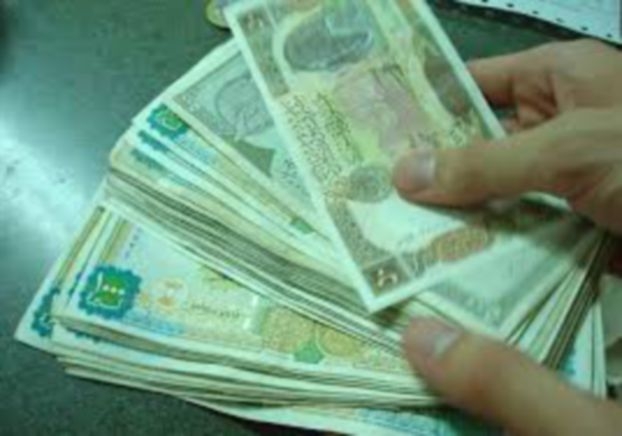The exchange rate of the Syrian pound against the American dollar fell Sunday to an unprecedented degree, reaching a level 13 times lower than five years ago, in an indication that foreign reserves are “drying up.” Fighting between regime and loyalist militia forces and Islamist factions in the southern Aleppo countryside meanwhile continued, while the truce in Aleppo was interrupted by the fall of mortars on regime areas.
The American dollar has risen notably over the past three weeks to reach an exchange rate of 625 Syrian pounds in the black market, while the Central Bank has limited the official rate at 512 pounds to a dollar. This is the single largest increase of the dollar since the start of the Syrian uprising in mid-March 2011, a time when a US dollar cost 48 Syrian pounds. At the start of 2016 the Central Bank had limited the dollar’s exchange rate to 290 pounds, while it reached up to 390 pounds on the black market. However the rate spiked at the beginning of last month to 442 pounds on the official market and 500 pounds on the black market.
Analysts attributed the reason to speculation in the black market, which governs the exchange rate. It has been difficult to find a mechanism to govern the exchange rate at a time when the intervention sessions announced by Central Bank governor Adib Mayaleh have not yielded the desired results. At the start of the protests in 2011, the bank said it was maintaining reserves of $18 billion, but these reserves have been greatly reduced over the past few years, and economic analysts are sceptical of how much remains of them. It is thought that Iran has provided about $5 billion in assistance and credit lines to the Syrian government. Economic analyst Jihad Yazigi, editor of the online economic publication The Syria Report, said that the deterioration of the pound’s value “clearly means that the reserves have dried up.”
The United Nations Economic and Social Commission for Western Asia (ESCWA) said in a report that the conflict had killed and wounded 2.3 million people and forced another 12 million people to flee, in addition to a decline of 55 percent in the gross domestic product. The economy’s losses amounted to about $259.6 billion, while more than 80 percent of the population lives below the poverty line. The report said that average life expectancy in Syria had dropped from 70 years in 2010 to 55.4 years in 2014, adding that half of the country’s 493 hospitals had being seriously damaged in the war.
The start of the pound’s recent decrease in price coincided with the announcement by Damascus of the battle to retake Aleppo, prior to Moscow reaching an agreement with Washington for a truce in the city. Fighting has meanwhile continued in the Aleppo countryside, where dozens of regime fighters and loyalist militia members were killed in an attack carried out by Islamist factions who retook control of the strategic village of Khan Touman.
This article was translated and edited by The Syrian Observer. Responsibility for the information and views set out in this article lies entirely with the author.


